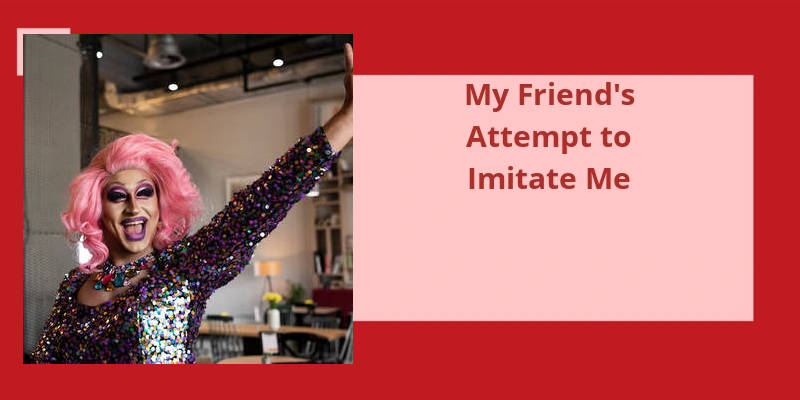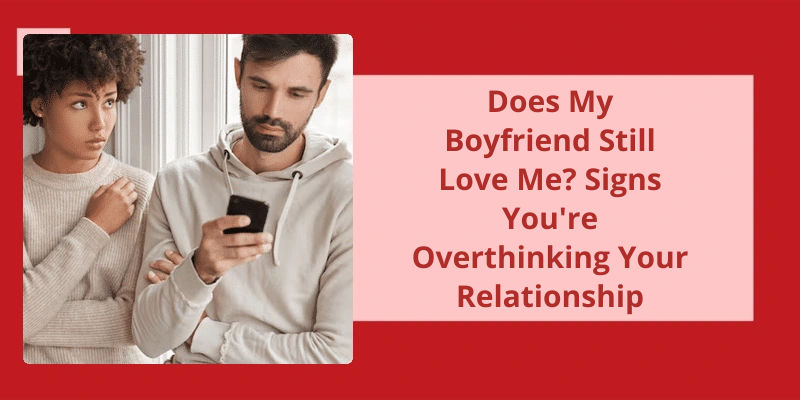Imagine having a friend who’s so enamored by your persona, your wit, and your way of navigating through life that they attempt to emulate every aspect of your being. Such is the curious case of my friend's desperate endeavor to imitate me. From imitating my clothing style and mannerisms to adopting my vocabulary and hobbies, it’s both flattering and unnerving to witness someone so fervently trying to walk in my footsteps. As I observe this peculiar phenomenon, I can’t help but ponder the reasons behind such behavior. Is it a genuine admiration or a desperate yearning for identity? What motivates someone to imitate another person so intently, and what consequences does it bear on both their individuality and our friendship? These questions swirl in my mind as I embark on a journey to explore the complexities and intricacies of my friend's attempts to be me.
Why Would Someone Not Want to Be Your Friend?
One possible reason why someone might not want to be your friend is simply because they already have enough friends in their life and can’t accommodate any more. People have limited time and energy, and maintaining friendships requires effort and investment. It’s possible that this persons social circle is already full, leaving no room for new connections. In such cases, it isn’t a reflection of your personality or likeability, but rather a matter of practicality.
People are unique and have varying tastes and preferences when it comes to friendships. It’s entirely feasible that this person simply doesn’t resonate with your personality, interests, or values. While this may be disappointing, it’s important to recognize that not everyone will click or feel a strong connection with one another. It’s a natural part of building relationships.
Human beings gravitate towards those with whom they can share experiences, interests, and commonalities. If this person perceives a lack of common ground or an inability to relate on multiple levels, they may choose not to pursue a friendship. While it can be disheartening, it’s crucial to remember that compatibility plays a significant role in the formation of friendships.
Moreover, it’s important to consider that friendships aren’t necessarily one-sided. It’s possible that you may also have reservations about being friends with someone, and this feeling can be mutual. Friendships thrive on a mutual desire to connect and build a meaningful relationship. If either party doesn’t possess that desire or feels uncertain about establishing a friendship, it may result in one person not wanting to pursue the connection.
Finally, it’s essential to acknowledge that everyone has their own set of personal preferences, biases, and judgments. Some people may pre-judge or develop a negative impression of others without any valid reason. These individuals might not want to be your friend solely based on superficial factors, stereotypes, or unfounded assumptions. It’s unfortunate, but it’s essential to recognize that these types of subjective judgments are beyond your control and don’t reflect your true worth or character.
These reasons can range from practical limitations in their social circle to personal preferences, differences in values or interests, and even superficial judgments. Understanding and accepting that not everyone will desire or reciprocate friendship is an integral part of navigating relationships. Instead of dwelling on others decisions, it’s more worthwhile to focus on nurturing and appreciating the meaningful friendships you’ve while remaining open to new connections that align with your values and interests.
Identifying genuine friendship can sometimes be tricky, but certain signs can help determine if someone truly wants to be your friend. One clear indication is their eagerness to spend time with you, often going out of their way to make plans. Additionally, their willingness to open up and share personal details signifies a growing bond. Discovering common interests, introducing you to new people, and developing inside jokes further solidify this connection. Notably, friends who constantly communicate and share experiences even when apart demonstrate their desire to maintain a strong friendship. As the relationship deepens, long-term planning and exchanging advice become natural aspects of the friendship. By recognizing these signs, you can identify those genuine individuals who genuinely want to be your friend.
How Do You Know if Your Friend Wants to Be You?
Have you ever had a friend who seems so eager to spend time with you that it feels like they want to be you? It can be flattering, but it can also leave you feeling a bit uneasy. So how can you tell if your friend actually wants to be you? Well, there are a few signs to look out for.
Firstly, if theyre constantly trying to hang out with you and seem disappointed when youre busy, it could be a sign that they want to be closer to you. They might admire your lifestyle and want to be a part of it.
Secondly, if your friend is opening up to you more than usual, it could be a sign that they see you as someone they want to emulate. Sharing personal thoughts and feelings is a way of bonding and forming a deeper connection.
Thirdly, if you find that you’ve a lot in common with this friend, it could be a sign that theyre trying to imitate you. They might be trying to adopt your interests and hobbies as their own in order to feel more connected to you.
Another sign to look out for is if your friend is introducing you to new people. This could mean that they want to imitate not just your lifestyle, but also your social circle. They see the people you hang out with and want to be a part of that group too.
If you and your friend have inside jokes that no one else understands, it could be a sign that they want to be like you. These jokes create a sense of exclusivity and intimacy, and they can be a way for your friend to feel closer to you.
Furthermore, if your friend is constantly checking in with you and sharing details about their life when youre apart, it could be a sign that they want to be more like you. By keeping you informed about their activities, theyre trying to create a sense of closeness and involvement.
Lastly, if you and your friend are already making plans months in advance, it could be a sign that they want to be more like you. They might be trying to align their schedule with yours in order to spend more time together and further imitate your lifestyle.
There are several signs that someone may want to be your friend and imitate your life. From their eagerness to hang out with you, to opening up and sharing personal details, to finding and creating common interests, these signs can indicate that your friend admires and aspires to be like you. Just be sure to approach the situation with understanding and compassion, as they may simply be looking for a role model or mentor in their life.
The Impact of Social Media on Friendships and the Desire to Imitate Others
Social media has had a significant impact on friendships, often leading to a desire to imitate others. With the rise of platforms like Facebook, Instagram, and TikTok, people constantly see a curated version of their friends’ lives. This can create feelings of envy and the pressure to mimic their behavior or appearance to fit in or gain approval. However, this imitation can lead to a loss of authenticity and individuality as people strive to portray an idealized version of themselves online. It’s important to remember that what’s displayed on social media is often a highlight reel, and true connections are built on genuine interactions, not imitation.
Conclusion
In conclusion, my friend's attempt to imitate me has been an interesting journey that demonstrates the power of inspiration and the desire for self-discovery. While their efforts might seem flattering, it’s essential to recognize the importance of individuality and authenticity in one's journey through life. Instead of trying to become a copy of someone else, it’s far more gratifying to embrace one's unique qualities and channel them towards personal growth and self-fulfillment. Ultimately, by being true to ourselves, we empower others to do the same, fostering a world where individuality is celebrated and genuine connections are formed.





